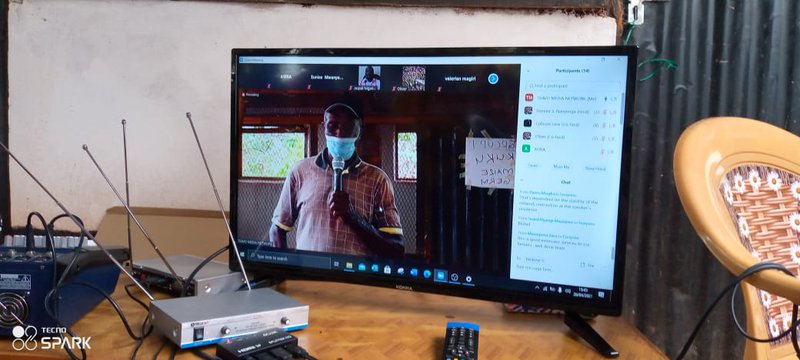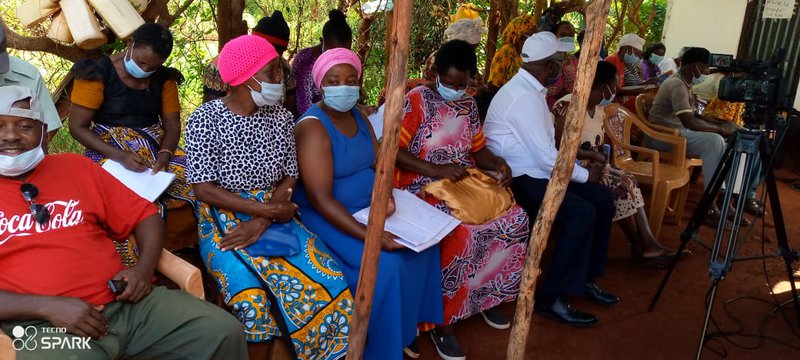Zoom Mashinani
Grassroots Farmers Discuss Season Progress
The word ‘Mashinani’ refers to grassroots in Kiswahili, Zoom, at the grassroots is an approach undertaken by the local media in Taita Taveta supported by ACREI partners and communities. Zoom Mashinani seeks to empower farmers at the grassroots level to discuss in groups with strict conformity to the COVID19 guidelines.

The IGAD Climate Prediction & Application Centre (ICPAC), the Food and Agriculture Organization (FAO), Kenya Meteorological Department (KMD) and the World Meteorological Organization (WMO) working under the Agricultural Climate Resilience Enhancement Initiative (ACREI) project, with funding from the Adaptation Fund, seek to address the challenges posed to climate information communication and feedback mechanisms that have been exacerbated by COVID19.
The goal of this initiative is to develop and implement adaptation strategies and measures that will strengthen the resilience of vulnerable smallholder farmers, agro-pastoralists and pastoralists in the Horn of Africa to climate variability and change. The overall objective is improved adaptive capacity and resilience to current climate variability and change among targeted farmers, agro-pastoralists and pastoralist communities, in Ethiopia, Kenya and Uganda. Local media, such as Tsavo Media Network, have been supporting the projects efforts to improve climate information dissemination and communication as a public good.
Taita Taveta County, just like many other counties in Kenya faces challenges associated with the digital divide. Digital divide refers to the gap between demographics and regions that have access to modern information and communications technology, and those that don't or have restricted access. This technology can include the telephone, television, personal computers and the Internet. Taita Taveta faces this challenge.
During the discussions on the MAM season forecast, the farmers were accorded a chance to explain how weather and climate information has influenced their on-farm decision making. The farmers explained that the October November December 2020 forecast was largely accurate and they used it to make decisions, leading to improved output. They provided a comparison between last season’s forecast and the March, April & May 2021 forecast stating that they as a group have diversified into poultry farming to reduce reliance on rainfed agriculture. In discussing the broader activities that are being conducted to support the farmers to use climate information, FAO explained the operation modalities of the Farmer Field Schools and how they uniquely respond to the challenges of weather and climate in Taita Taveta. The ACREI project has also supported development of a “Climate Change Adaptation Guide for Farmer Field Schools”, which is being field tested in the project locations.
The farmers explained that the current capacity building being conducted by FAO and partners at the Farmer Field School level involves decision making and adoption of alternative modes of agricultural production away from the erratic reliance on rainfed agriculture. The views of the women on the use of weather and climate information was also extensively discussed with women farmers explaining that weather and climate information has been crucial in promoting seasonal decision making on their part. There were challenges with the set-up of the equipment however the local team of journalists under Tsavo Media Network worked tirelessly towards resolving these issues.
Above all the farmers expressed appreciation on the level of support provided by all the partners.

